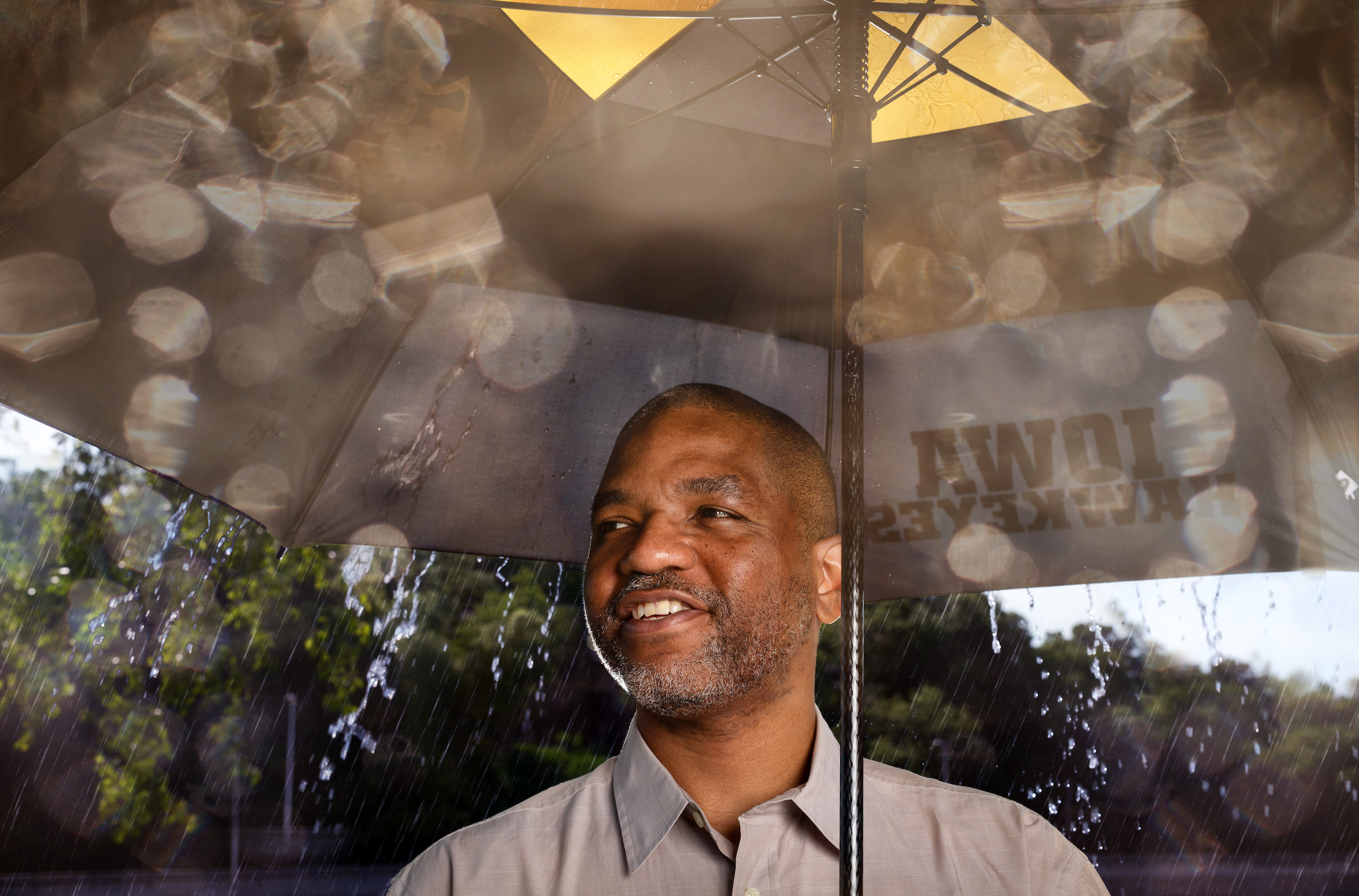College of Liberal Arts & Sciences
Iowa Professor Protects Disadvantaged From Floods

Devastation after Hurricane Katrina led Eric Tate to a career change and a new focus.
When IIHR—Hydroscience & Engineering researcher Eric Tate hears about a hurricane that’s about to slam into the coast, he doesn’t immediately think of pelting rain, strong winds, and dangerous waves. Most likely, he’s thinking about a community’s low-income neighborhoods, which his research shows are more likely to be negatively affected by big storms and flooding.
An expert in geographical and sustainability science, Tate conducts research that connects the dots between a storm’s impact, including flooding, wind damage, and physical destruction, and the lives of people who live in its path. Tate started his career as an engineer and worked for a time as a federal contractor, but when he heard about Hurricane Katrina’s lethal blow to low-income and minority neighborhoods in New Orleans in 2005, he quickly changed course.
“Most of the time with floods, we’re thinking about damage to buildings and structures such as roads and bridges. We’re think about losses in terms of the money it will take to rebuild a city center,” Tate says. “But Katrina was about people. My research focuses on the social side of flooding. Where are the people who are most at risk? Who are they? What kinds of things do we need to account for in terms of emergency planning? How do we accurately model this?”
Read the full story here.